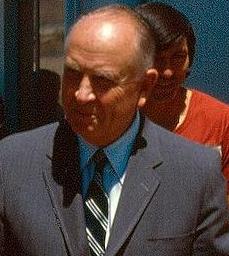A Quote by Jerry Rubin
We had a sense of importance that would have led us to risk our lives for our rhetoric.
Related Quotes
In the Art of Dreaming Don Juan tells Carlos, "... most of our energy goes into upholding our importance... if we were capable of losing some of that importance, two extraordinary things would happen to us. One, we would free our energy from trying to maintain the illusory idea of our grandeur; and two we would provide ourselves with enough energy to ... catch a glimpse of the actual grandeur of the universe."
It's so easy in life for us to receive blessings, many of them almost uncounted, and have things happen in our lives that can help change our lives, improve our lives, and bring the Spirit into our lives. But we sometimes take them for granted. How grateful we should be for the blessings that the gospel of Jesus Christ brings into our hearts and souls. I would remind all of you that if we're ever going to show gratitude properly to our Heavenly Father, we should do it with all of our heart, might, mind, and strength-because it was He who gave us life and breath
If God had perceived that our greatest need was economic, he would have sent an economist. If he had perceived that our greatest need was entertainment, he would have sent us a comedian or an artist. If God had perceived that our greatest need was political stability, he would have sent us a politician. If he had perceived that our greatest need was health, he would have sent us a doctor. But he perceived that our greatest need involved our sin, our alienation from him, our profound rebellion, our death; and he sent us a Savior.
Food is such an important part of our lives, and sometimes we tend to diminish the importance of that, because we rely on conveniences or because our lives are so complicated. We forget about those moments that we can actually share around the table with our family, with our friends, with our loved ones.
In those days, we imagined ourselves as being kept in some kind of holding pen, waiting to be released into our lives. And when the moment came, our lives -- and time itself -- would speed up. How were we to know that our lives had in any case begun, that some advantage had already been gained, some damage already inflicted? Also, that our release would only be into a larger holding pen, whose boundaries would be at first undiscernible.
The artist appeals to that part of our being which is not dependent on wisdom; to that in us which is a gift and not an acquisition-and therefore, more permanently enduring. He speaks to our capacity for delight and wonder, to the sense of mystery surrounding our lives; to our sense of pity, and beauty and pain.
The most profound question is, "What would I risk dying for?" The natural answer is "for my family." But for most of history, we didn't live in families. We lived in small communities that gave us our sense of safety and place in the world, so the natural answer would be "for my people." The blessing and the tragedy of modern life is that we don't need our community to survive anymore. When we lose that idea, we lose a sense of who we are.
And we're also remembering the guiding light of our Judeo-Christian tradition. All of us here today are descendants of Abraham, Isaac, and Jacob, sons and daughters of the same God. I believe we are bound by faith in our God, by our love for family and neighborhood, by our deep desire for a more peaceful world, and by our commitment to protect the freedom which is our legacy as Americans. These values have given a renewed sense of worth to our lives. They are infusing America with confidence and optimism that many thought we had lost.
The truth was I'd given up waiting long ago. The moment had passed, the door between the lives we could have led and the lives we led had shut in our faces. Or better to say, in my face. Grammar of my life: as a rule of thumb, wherever there appears a plural, correct for singular. Should I ever let slip a royal We, put me out of my misery with a swift blow to the head.




































